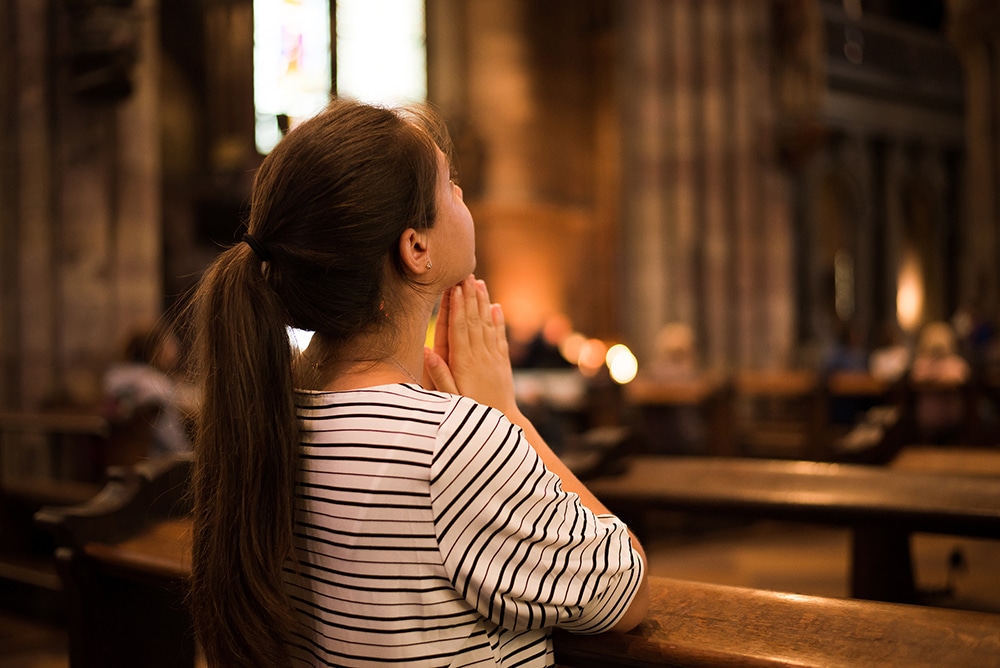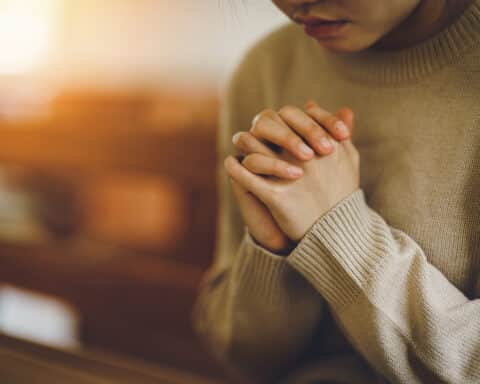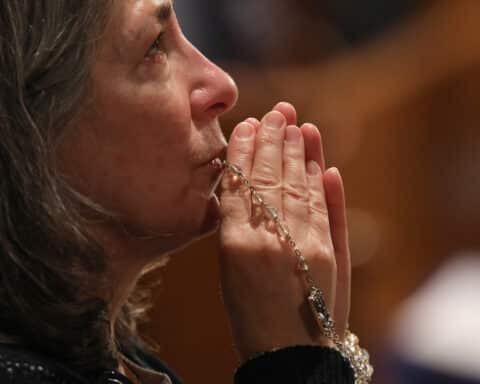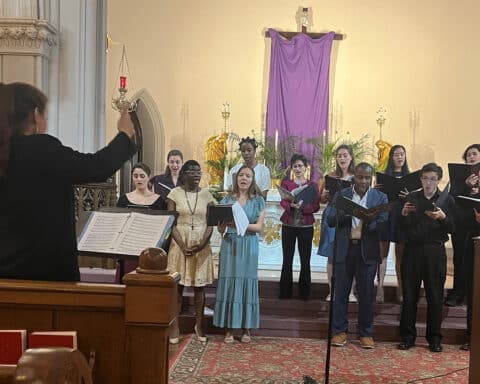If you are anything like me, you likely get distracted during Mass. As someone who has been Catholic my entire life and raised in a family where one only missed Mass if they were sick, I know the liturgy so well I could probably list most of the saints in the Roman Canon, and not just the apostles: “Linus, Cletus, Clement, Cyprian, Lawrence, Chrysogonus, John and Paul, Cosmas and Damian … .” Well, I guess I missed Sixtus and Cornelius, but you get the point.
And yet, despite the fact that I can quote much of the prayers that the priest alone says, I often zone out and go on auto-pilot. Instead of focusing on the sacred mystery before me, my brain starts listing all the items I need to pick up from the grocery later in the week or recipes I want to try, not to mention any number of to-dos on my checklists for wedding planning and house hunting. My brain is always racing, even at the most crucial moment of my week. And I know I’m not alone.
Recently, my fiancé and I were together with a group of friends who are a bit nerdy when it comes to the liturgy. We’ve all come from different experiences of growing up Catholic, but our mutual desire for finding and cultivating beauty and reverence in the liturgy has brought us together and led to many great discussions. At this gathering, one of the men in the group opened the floor for conversation with this question: How do you pray the Mass?
I know. Good question. Yet, it’s pretty sad that this is the first time someone has directly asked me this question.
Our conversation addressed how to pray the Mass from many perspectives, but I wanted to summarize the group’s thoughts and present them to you as possibilities for how to pray the Mass better. They can be broken down into two categories:
1. Before Mass starts:
-
- Make an examination of conscience every day or at least once a week. This way, when the priest asks us to examine our hearts during the Mass, we can easily bring our sins to mind and ask for the Lord’s forgiveness.
- Prepare your mind before walking into the church by reviewing the Sunday readings so they are familiar to you when they are read at Mass. This is especially useful for parents with kids who might not be able to juggle the missal and their toddler(s), or if a parent needs to take a kid aside for a bit, they still know what readings were read.
- Prepare your body by wearing clothes set aside for Sunday or special occasions. We are body and soul, and our hearts can become lax in prayer if our attire doesn’t reflect the occasion.
- At some point (either before arriving or when you are first praying in the pew), take time to put aside anything on your mind that could become a distraction. Offer them to the Lord, and ask him to remind you of anything pressing later — or write it down if you need to. Either way, clear your mind of anything not related to the Mass so you can better enter into the liturgy.
- Find resources, such as books and videos, that help explain what is happening during the Mass. We often forget the depth of what is happening or simply have never been taught.
2. During the Mass
-
- Participate. Sing the songs, even if they are not your favorite. Say the responses. Keep your focus forward on what is happening in the sanctuary.
- Use different phrases within the Mass as touchstones should you get distracted. For example, the phrase “Lift up your hearts” usually brings me back from distraction.
- Bring an intention to Mass that you can offer to the Lord. If you have someone you are praying for within the course of the Mass, it offers personal meaning.
- Say mental prayers of thanksgiving after Communion. Simply search for “prayers after holy Communion” online, and you will find at least a few options that you can print out and bring or memorize.
- When the final hymn is over, take a few moments to kneel and once again thank Christ for the gift of himself in the Eucharist.
This is just a starting list, one that I need to take to heart. But with the Eucharistic Revival about to start, it’s important for Catholics to examine how we approach the altar of the Lord. Are we showing up as a routine or with intentionality? God takes our imperfect worship and is grateful for whatever we offer, but what he wants above all else is a heart focussed on him.
Ava Lalor is associate editor for Our Sunday Visitor and editor for Radiant magazine.





